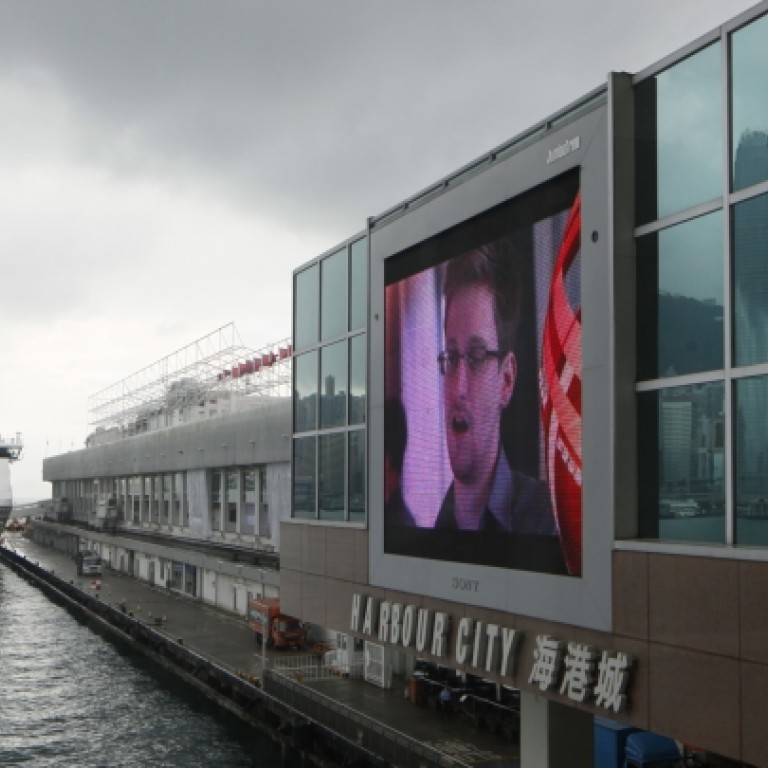
With Snowden case, Hong Kong must keep faith in its values and freedoms
Stephen Vines says Snowden's case should be decided by law, not politics
Is there anything left to say about Edward Snowden's flight to Hong Kong in the wake of his allegations about US cyberspying? The answer is yes, because some outstanding matters remain to be clarified and other aspects have been unintentionally revealing.
First, we are confounded by the extreme reluctance of the people who run Hong Kong to claim any credit for Snowden's two main stated reasons for coming here; namely freedom of expression and rule of law.
Second, Chief Executive Leung Chun-ying, who happened to be in New York when this story broke, provided unintended confirmation of his subservience to the bosses in Beijing because, in the face of repeated questioning, he was rendered speechless in addressing this matter. Either he was waiting for orders or was fearful of deviating from the party line.
Third, we yet again found that the people of Hong Kong were well ahead of their leaders. If opinion polls are to be believed, a majority clearly support sanctuary for Snowden, a whistle-blower they believe performed a public service. Moreover, the public has started asking the right questions about the information he disclosed.
Meanwhile, Snowden has not really given a coherent explanation of why he came here. Hong Kong is hardly unique in having rule of law or freedom of expression, and it is an adjunct to a one-party-ruled state that puts whistle-blowers in prison and has little tolerance for free speech. So what really made Hong Kong so compelling?
Naturally the bosses in Beijing can hardly contain their delight over revelations of massive cybersnooping by the US, at a time when Washington is self-righteously making precisely the same accusations against China.
However, it seems more than likely that now Snowden has served his purpose, he can expect little by way of protection from Beijing. Most shrewd observers of US-China relations are convinced Beijing would like him off the premises as soon as possible.
This brings us to an important consideration about Hong Kong itself. Even during colonial times, when it was run by officials looking to impress their masters in London, the colony provided refuge to overseas dissidents. Sun Yat-sen and the Philippines' nationalist hero Jose Rizal come to mind. More recently, we saw how Hong Kong became the primary exit point and organising base for the escape of dissidents in the wake of the 1989 crackdown on the mainland.
In this and other ways, Hong Kong has established its role as a sanctuary and middleman for the cause of freedom every bit as persuasively as it has established the same role in business.
No one should underestimate the awkwardness of this middleman role, but it has served Hong Kong well and will continue to do so if the qualities cited by Snowden are maintained. Yet both the supremacy of rule of law and tolerance of freedom of speech are undermined and questioned by the Hong Kong government, which presumably explains its silence in this matter.
It is worth restating that the integrity of the judiciary can hardly be sustained by repeated attempts to refer, or threats to refer, its decisions to Beijing for so-called "reinterpretation". Equally, freedom of expression is tested most when large masses of people gather to protest. These freedoms start to shrivel when doubt is cast on the right of citizens to gather and the police are increasingly mobilised for political reasons.
Coming back to the specifics of the Snowden case, it seems Hong Kong can do itself a lot of good by making absolutely sure that this is dealt with by applying the law without any form of intervention from above. In the event that the US makes an extradition request, there is absolutely no need to go anywhere other than the courts.

